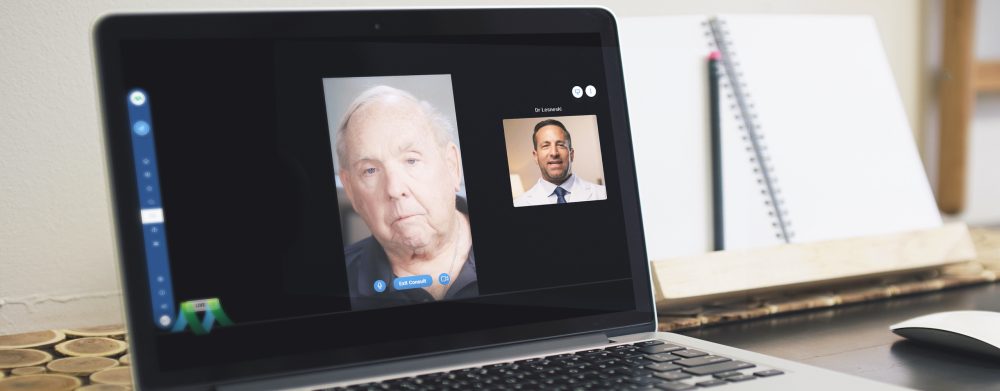Most of us get our wisdom teeth at some point in our late teens or early 20s. These back molars are the final teeth to emerge, and in many cases, they are too large for the jaw to hold them. Leaving your wisdom teeth in place can result in long-term oral health complications, but these complications are easily avoided via proactive wisdom teeth removal. At Greater Michigan Oral Surgeons & Dental Implant Center, our surgeons have ample experience providing wisdom teeth removal for patients in Flint, Saginaw, Bay City, Owosso, Oxford, and Midland.

Most Common Reasons to Have Wisdom Teeth Removed
Because the jaw is too small to accommodate the wisdom teeth, these molars often become impacted. This means they remain trapped under gum or bone tissue, contributing to both functional and aesthetic problems affecting your smile. Having your wisdom teeth removed early, before they start causing problems, is an excellent way to avoid future dental complications.
Some of the primary reasons to have your wisdom teeth removed include:
Avoid Crowding When Using Orthodontics
Discomfort And Sensitivity Around the Impacted Teeth
Infection In and Around the Gums
Avoid Crowding When Using Orthodontics
Cysts Around the Jawbone
Tooth Decay
Is There a Right Age To Have My Wisdom Teeth Removed?
We generally advise patients to come in for the procedure when their wisdom teeth emerge or when discomfort starts. For most patients, this will happen sometime during adolescence or early adulthood.
Wisdom Teeth Removal
What to Expect
Preparing for the Procedure
Before your surgery, your surgeon will let you know if there are any steps you need to take in order to prepare for a safe, successful surgery. In some situations, our surgeons might advise patients to pause certain medications or supplements that could interfere with healing.
During the Procedure
When you arrive for wisdom teeth removal, our patient care team will welcome you, address any last-minute questions, and lead you to a private treatment room. Greater Michigan Oral Surgeons & Dental Implant Center have multiple anesthesia and sedation options to ensure your comfort during the surgery. Wisdom teeth removal is a very quick process, usually taking less than an hour in total.
Immediately After the Procedure
Once the wisdom teeth are out and your anesthesia begins to wear off, we will provide you or your escort with aftercare instructions, then discharge you home for rest and recovery.
Do You Have a Ride Home?
Because the lingering effects of anesthesia can include some grogginess, we ask that every wisdom tooth patient have someone wait with them during the procedure to receive the aftercare instructions and provide a ride home.
How Long Are You Groggy After the Procedure?
The after-effects of anesthesia can last for a few hours, but you should find that the grogginess is gone within the first day or so of your recovery.

Recovery and Aftercare
Following a few essential aftercare instructions is important to promote a quick recovery and minimize your risk of infection or other complications. First and foremost, we encourage patients to devote at least four days of resting at home and avoid strenuous exercise for at least one week.
First 24 Hours
For the first day, you may still have gauze or bandages covering your surgical sites, but you can still enjoy soft, mild foods and liquids. It is also normal to experience some intermittent bleeding over the first few days of your recovery. Be sure to change your gauze and bandages as often as needed.

First Week
Swelling and pain tend to reach their peak during the third and fourth days. Both prescribed and over-the-counter medications can mitigate these symptoms. By the end of the first week, you should feel more or less back to normal and ready to resume a normal diet.
First Month
By the end of the first month, you should be back to normal activities.
How Long Should You Expect to Be Out of Work or School?
Most people are ready to resume their normal day-to-day activities after three or four days. We often advise patients to schedule their wisdom teeth removal for Thursday or Friday. By Monday or Tuesday, you will likely feel ready to return to school or work.
How Long Should You Wait Before Eating?
You can eat the first day but stick to liquids and soft foods. Most wisdom teeth patients transition back to their regular eating habits within about a week.
What Foods Can You Eat After Having Your Wisdom Teeth Removed?
Avoid hot-temperature foods or beverages, spicy dishes, and sugary treats for optimal recovery. Drinking from a straw is also not recommended. Instead, consider eating soft foods like applesauce, mashed potatoes, mashed bananas, Jell-O, smoothies without seeds, tender rice, and well-cooked pasta. These choices will ensure your comfort while also providing the necessary nourishment.
Meet Your Doctors
Trusted Wisdom Teeth Care With Greater Michigan Oral Surgeons
At Greater Michigan Oral Surgeons & Dental Implant Center, we make wisdom teeth removal safe, comfortable, and stress-free. Each of our oral surgeons brings over a decade of experience, combining advanced technology and a gentle approach to promote smooth recovery and long-term oral health. With same-day consultations when available and offices in Flint, Saginaw, Bay City, Owosso, Oxford, and Midland, we provide trusted wisdom teeth care close to you—making expert treatment accessible across Michigan. Schedule your consultation today to ensure a healthy start for your smile.
Types of Anesthesia
We offer a variety of anesthetic options to make your experience as pleasant and comfortable as possible. The method of sedation used depends on your preference, the nature of the procedure, and your medical history.
Local, Nitrous Oxide, and IV Sedation
